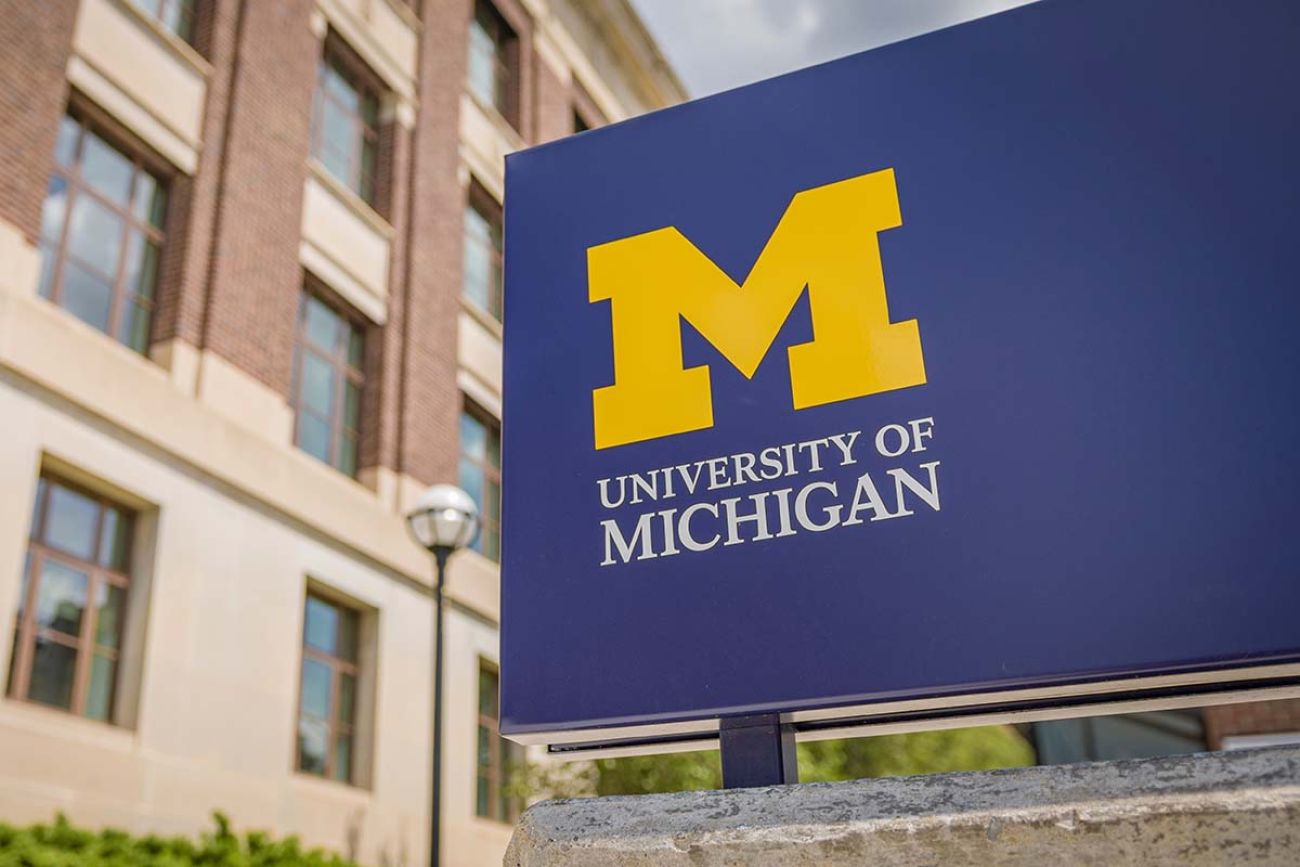Michigan universities would lose millions if Trump caps research costs

- Changes in National Institutes for Health funding changes could cost universities millions in administrative fees
- The University of Michigan could lose more than $300 million
- Judge temporarily blocks the rule, but sets arguments for Feb. 21
Michigan universities and hospitals stand to lose hundreds of millions of dollars in federal research funding under a change in policy at the National Institutes of Health that a federal judge temporarily blocked Monday.
The change from President Donald Trump's administration is intended to rein in administrative costs and direct more money toward research. Beneficiaries say it would stifle medical research, close clinical trials and lead to layoffs at research institutions like the University of Michigan, Michigan State University and Wayne State University.
“It’s a big deal,” said Michael Imperiale, professor emeritus of microbiology and immunology at U-M. “My phone has been blowing up. They (researchers) are scared.”
A federal judge appointed by former President Joe Biden temporarily halted the policy from the National Institutes of Health to limit “indirect costs” that are built into grants to 15% above direct research costs. The judge scheduled arguments in the case for Feb. 21.
Related:
- Michigan transgender youths to continue high school sports, despite Trump order
- Experts: Trade tariffs remain threat to US auto industry
- MSU apologizes for canceling Chinese student event after Trump order
Currently, MSU gets 57% on top of every dollar of direct research grants from NIH; U-M gets 56%, and Wayne State 54%.
Direct costs go to staffing and equipment needed for research; indirect costs help pay for things like laboratories and the buildings those labs are in, utilities, support staff, accounting, safety and compliance with mandatory regulations connected to the grants.
“The United States should have the best medical research in the world,” the NIH letter said.
“It is accordingly vital to ensure that as many funds as possible go towards direct scientific research costs rather than administrative overhead.”
The letter said the change goes into effect Monday, with grants that have already been approved at the higher indirect cost rates.
The lawsuit was joined by Democratic attorneys general from several states, including Dana Nessel of Michigan.
She said Trump was acting like a "king" and said the policy could “disrupt tens of thousands of research projects here, many of which are already currently underway and focus on improving health outcomes and, of course, preventing … unnecessary deaths.”
If reinstated, the impact of the cost cap could be felt quickly, particularly at the University of Michigan, which receives the third-most NIH funds among US universities, behind Johns Hopkins University and the University of California San Francisco.
In 2024, U-M received $734 million in NIH grants supporting more than 2,700 separate projects and 4,125 faculty, post-doctoral and graduate students.
MSU and Henry Ford-MSU Health Science received a total of $110 million in 2024; Wayne State, $73 million; Oakland University, $4.7 million; Michigan Technological University, $4.3 million; Western Michigan and its medical school, $2.5 million; and Central Michigan University, $1.9 million.
Hospitals and medical researchers also could be affected, including the Van Andel Research Institute in Grand Rapids ($25 million last year); Henry Ford Health System ($17 million) ; St. Joseph Mercy ($3.3 million); the Corewell Health Beaumont Research Institute ($2.4 million) and Spectrum ($2 million.)
The NIH letter noted that private foundations only allow 10% in indirect costs payments and argued that the new, 15% rate, “will allow grant recipients a reasonable and realistic recovery of indirect costs.”
Researchers say grants from other sources are structured so that some things considered to be indirect costs by the federal government are instead included as direct costs.
A “dear colleagues” letter from U-M released Saturday said there was “a great deal of uncertainty over whether and how this policy will be implemented.”
The letter from U-M didn’t specify how much funding was at stake at the university, but Imperiale, who was associate vice president for research until 2022, estimated U-M alone is set to lose between $300 million and $400 million.
With that level of loss, “there would have to be some kind of shrinkage of research,” Imperiale said, listing clinical trials, basic research and research jobs as likely casualties.
MSU estimated a loss of $27 million if the funding formula is enacted on current grants.
A letter to MSU faculty and staff from President Kevin Guskiewicz said the loss “significantly impacts the important research happening in projects across many units and in turn impacts communities across our state and around the world,” adding that “as a leading global public research university, we will continue to conduct groundbreaking research, catalyze innovation and drive economic growth that strengthens our state and nation.”
The Council of Government Relations that represents research institutes released a statement calling the change a “surefire way to cripple lifesaving research and innovation.”

Nolan Mize has a personal stake in the funding battle. The 11-year-old from Jackson County has mental and physical disabilities that were only diagnosed recently as a rare genetic mutation through genetic testing at the University of Michigan CS Mott Children’s Hospital.
Genetic testing, and the research to refine that testing, is funded through NIH grants.
“We are waiting to go to a follow-up appointment with a geneticist and a neurologist, which we are hoping will still happen,” said Nolan’s mother, Brittnee Senecal.
“I don’t know how the funding cuts will affect the University of Michigan, particularly their genetics team … which is funded by NIH.”
Senecal said that if the federal government is going to alter medical research funding, it should be giving more money, not less.
See what new members are saying about why they donated to Bridge Michigan:
- “In order for this information to be accurate and unbiased it must be underwritten by its readers, not by special interests.” - Larry S.
- “Not many other media sources report on the topics Bridge does.” - Susan B.
- “Your journalism is outstanding and rare these days.” - Mark S.
If you want to ensure the future of nonpartisan, nonprofit Michigan journalism, please become a member today. You, too, will be asked why you donated and maybe we'll feature your quote next time!








